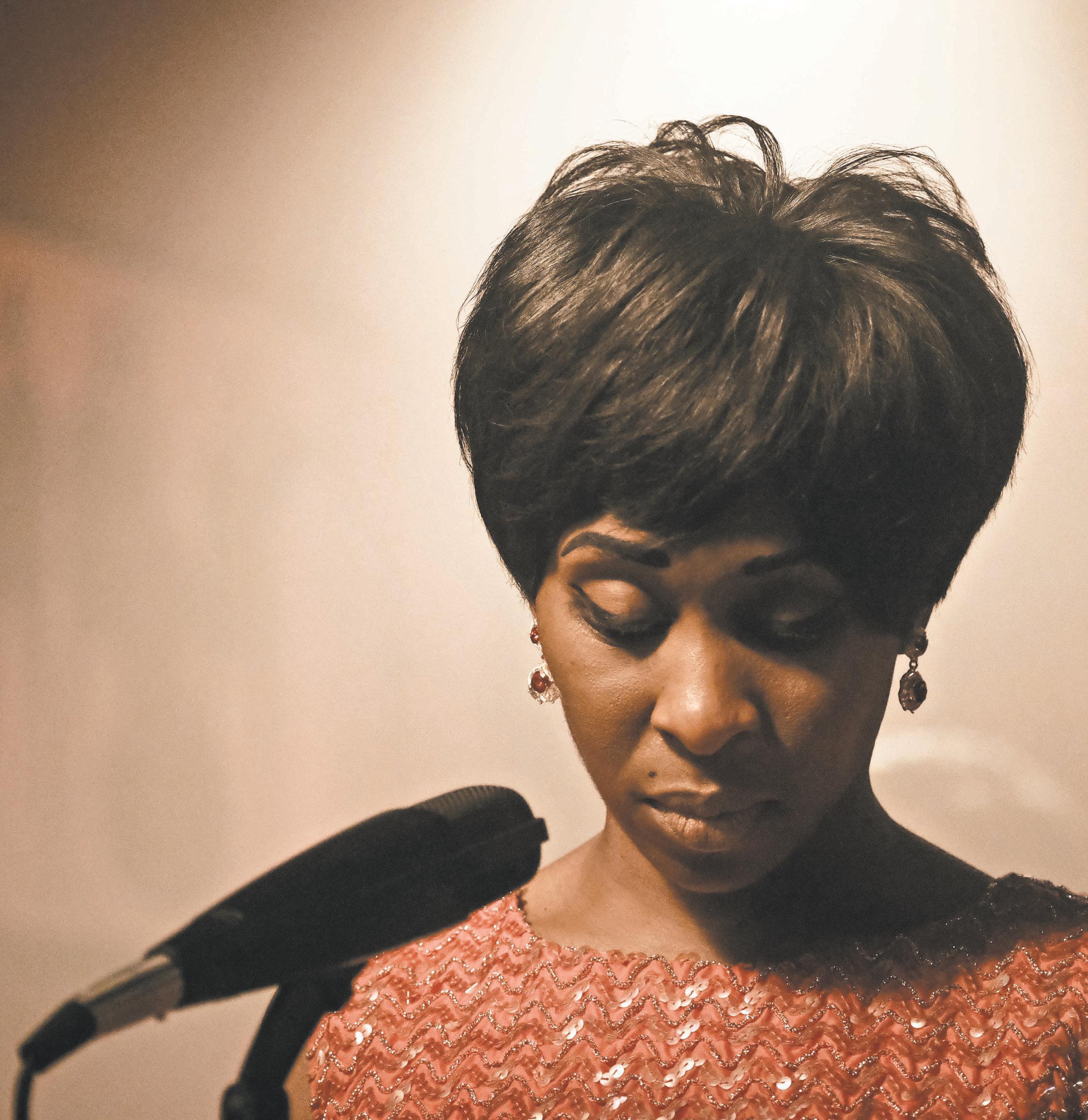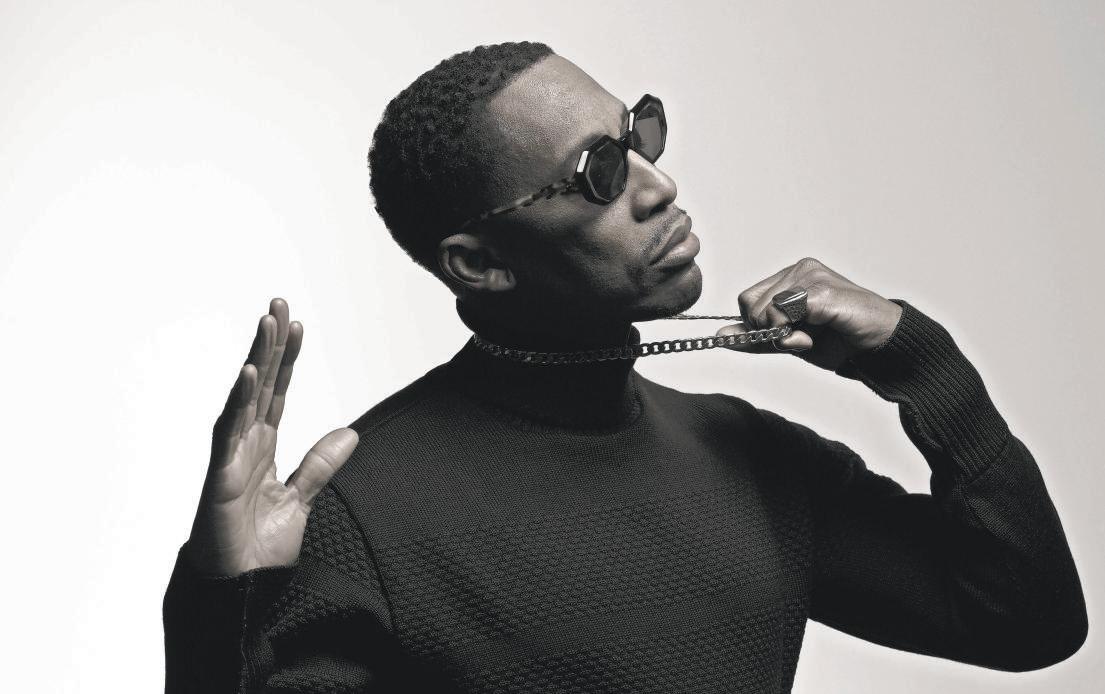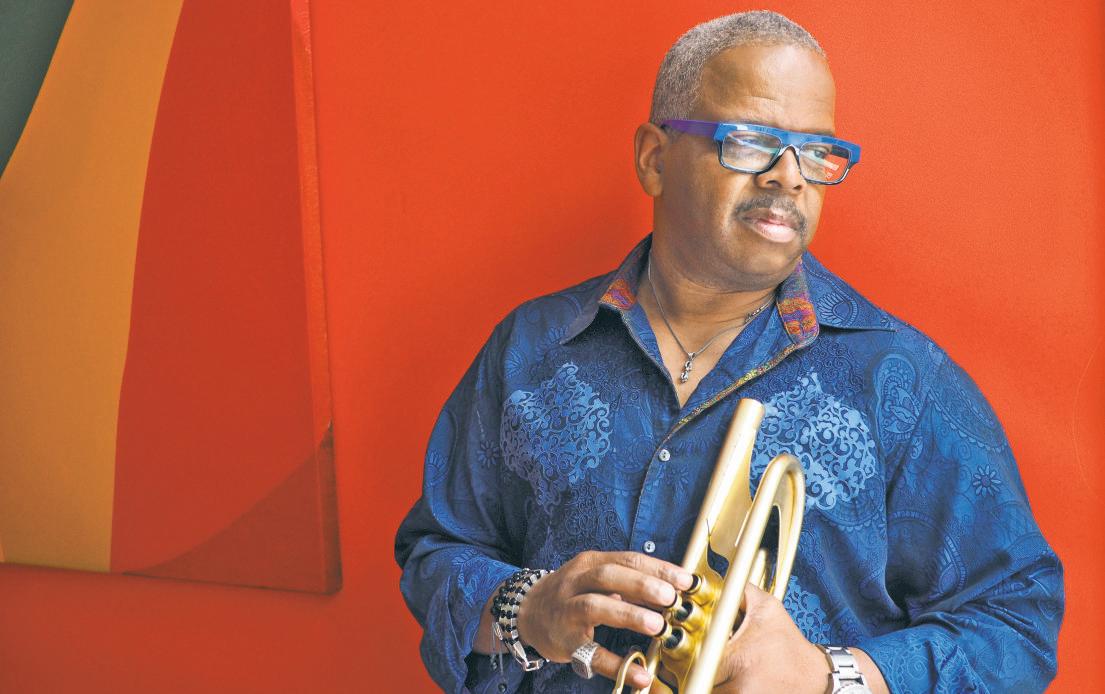
7 minute read
inauguration in 2009
USA TODAY SPECIAL EDITION
GENIUS: ARETHA
Advertisement
The voice, the songs, the soul of music
Aretha Franklin was a fixture of the American soundtrack for more than half a century
STORY, PAGE 10
Cynthia Erivo stars as Aretha Franklin in the third season of National Geographic’s anthology series “Genius,” premiering March 21. RICHARD DUCREE/NATIONAL GEOGRAPHIC
GENIUS: ARETHA
USA TODAY SPECIAL EDITION
Aretha Franklin’s acclaimed live album “Amazing Grace,” recorded in Los Angeles in 1972, was her best-selling LP.

Franklin’s father, the Rev C.L. Franklin, was pastor of New Bethel Baptist in
Detroit. PHOTOS VIA NATIONAL GEOGRAPHIC

Jacqueline Cutler Special to USA TODAY
Ultimately, it is the voice.
That voice will live forever for a reason. If it’s been a minute, or if for some inexplicable reason you have never understood the allure of Aretha Franklin — please, just listen to her.
Her rendition of “Amazing Grace” could make a believer out of the devil. Her “Chain of Fools” could get mourners dancing. Her performance of “Think” in “The Blues Brothers” is a showstopper. And those are just three of her dozens of hits.
Franklin’s voice was always singular, with a range and power few could claim, soaring and holding onto notes no matter the style. Aretha Franklin could sing anything, from schmaltzy
USA TODAY SPECIAL EDITION
ballads to the best of soul. Who else could do what she did in 1998 and fill in for legendary Italian opera tenor Luciano Pavarotti on, basically, no notice?
Franklin was more than a singer or a superstar, more than a songwriter and arranger. She was music. Glorious music that could change your perspective the moment she opened her mouth. To take the time just to listen — no matter what nonsense of the day tugs at you — is to give yourself over to why there is music.
“We will never have another queen because now there is nothing to be queen of,” said Raphael Saadiq, executive music producer of “Genius: Aretha.”
For anyone who came of age in the past 60 years, Franklin was on the soundtrack of their lives. That doesn’t make her mere background music, however. Aretha Franklin could no more blend into the background than a pride of lions could lope unnoticed through your living room. Franklin’s voice, her very presence, demands that you listen.
And when you listen, you learn about the changes that rocked the country.
“In her voice, you really do hear this melding of American music,” explained Mark Anthony Neal, professor of popular culture and chair of the Department of African and African American Studies at Duke University. “You hear gospel, you hear blues, you hear soul music — even though there is not a name for it yet — and you hear the raunchy rhythm and blues of the ’50s. When you think about blues and jazz and gospel and rhythm and blues, they are distinctly American forms. When you think about American music in that way, what you hear in her voice is bringing together all of these influences.”
For Franklin, as for generations of mighty singers, it all started in the church. For her, it was the church of her dad, the Rev. C.L. Franklin. Before she did her first solo, she was already impressing parishioners. Even as a girl, Aretha could hear a song and sing it back note-for-note. And she listened to her father’s many talented friends when they swung by the house for parties.
“Everybody who came through Detroit came to his house,” Neal said. “Aretha was being nurtured by James Cleveland, Dinah Washington, Clara Ward and Mahalia Jackson. I think she helped to secularize the Black gospel tradition in American popular music.”
“Aretha is the heart of the world,” Saadiq said simply. “It’s so important we show that because at some point some little girl or some little man has to be able to find this music and find out what part belongs to them and what can they get out of it. Music is water. We need to drink it, and we need to see it and know what it was, and these stories need to be told.”
Saadiq recalls meeting Franklin at the Grammy Awards. Over the years, she amassed 18 Grammys, as well as a reputation for being funny, shy, hardworking — and also, at times, a diva. Perhaps a bit of all was on display that night.
“Everybody was sitting down, and she was with her family and grandkids, and I looked over and said hi, and she gave me this look of death, and she wanted to kill me,” Saadiq said. “Some of the kids probably told her who I was — I didn’t hear what they said — and her face changed.”
Saadiq, a member of the popular R&B group Tony! Toni! Toné! in the 1980s and ’90s, has produced and collaborated with John Legend, Mary J. Blige, the Isley Brothers, Snoop Dogg and many others, and toured with a jazz ensemble. He is one of those pure musicians who can play just about any instrument.
“My neighborhood was full of musicians,” he said. “And I am very lucky to have grown up around so many great musicians. Nothing special — in my neighborhood, in East Oakland, everyone played four or five instruments.”
For “Genius: Aretha,” new music would have been odd. Instead, Saadiq and Terence Blanchard, the composer, worked with songs they and the audience already knew.
“You want to pay homage to the Queen of Soul, to be sure,” said Blanchard, a trumpeter. “I got a chance to work with her a few times, and she was always very sweet and an impeccable performer. You wanted to put your best foot forward. My job is pretty easy because her music already exists, and those performances exist; whether mimicking or re-creating them, she laid the groundwork.”
As he worked on the series, Blanchard explained, his job with the score “is mostly there to bring out the emotional quality of any story being told, whether sorrow, pain, humor, suffering, love. And with a story like this, my job is to tell the backstory of Aretha mainly because all of the parts we know of Aretha will be handled by the performance.”
Blanchard recalled what it was like working with Franklin. “We had done the film ‘Malcolm X,’ and she sang a track, and then Spike (Lee, the director) wanted me to play on it. She heard me play on it, and she called me to do a concert with her in Detroit, the jazz festival. When she called me, I thought it was a bill collector. This dude said, ‘Would you please hold for Ms. Franklin?’ And she said, ‘Terence, ReRe here.’ I went, ‘Oh my God!’ ”
“I got a chance to do a rehearsal with her, which was amazing,” Blanchard recalled. “I had done the Herbie Hancock tribute for the (2013) Kennedy Center Honors. I had my youngest daughter with me, and we walked into rehearsal. She was in the middle of a song, and she sang to my daughter Jordan throughout the entire rehearsal. Jordan was maybe in her teens.
“We were backstage, and everybody was leaving. I got to the elevator at the same time, and she said, ‘Terence Blanchard, when are we going to work together again?’ And I said, ‘Whenever you call me.’”
And with this, she has.

“We will never have another queen,” Raphael Saadiq says. AARON RAPOPORT
“Aretha is the heart of the world. It’s so important we show that because at some point some little girl or some little man has to be able to find this music and find out what part belongs to them and what can they get out of it. Music is water. We need to drink it, and we need to see it and know what it was, and these stories need to be told.” Raphael Saadiq
Executive music producer of “Genius: Aretha.”

Composer Terence Blanchard worked with Franklin several times. HENRY ADEBONOJO
USATODAYSPECIALEDITION




